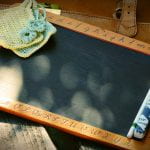Confidence, Confidence and more Confidence…

NeuPaddy / Pixabay
They are efficient at completing a task and appear to have more time than others. They communicate well with the principal in a formal and informal level and can make a coherent point simply and logically. As Wilson (2009-2016) suggests we can look at the zones of our day that are non negotiable such as teaching or playground duty time. Then use efficiently the time we can complete work in. Confident colleagues don’t appear to be flustered, they reprioritise as they negotiate their day.
The days I am more productive is Thursdays when our new Library assistant is in so I can focus more on teaching tasks while she attends to circulation and shelving. I am more attentive to the students and I can plan/prepare for classes without the little interruptions. I can focus more on small groups and individuals and be available for their queries and Orbit search questions. Our assistant is a godsend and is very willing to learn and keep things ticking over. This is also the day when I scan my program for the next week, make adjustments and improvements, find resources and take a moment to reflect on how to proceed. Imagine what I could achieve if we had a library assistant every day…
Wilson, T. (2009-2016). Time management for teachers – essential tips if you want a life outside school. Time Management Success. Retrieved from: https://www.time-management-success.com/time-management-for-teachers.html

